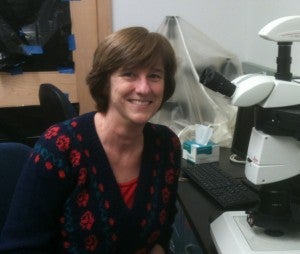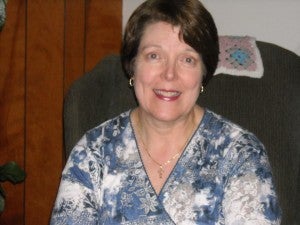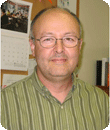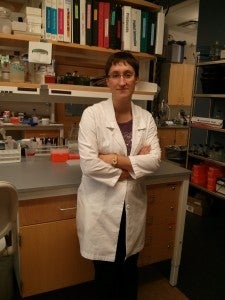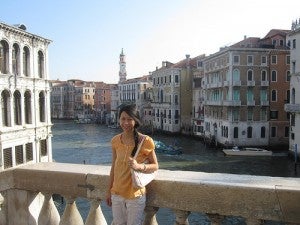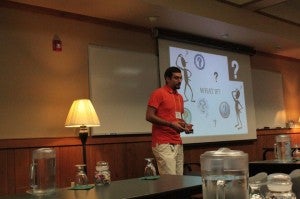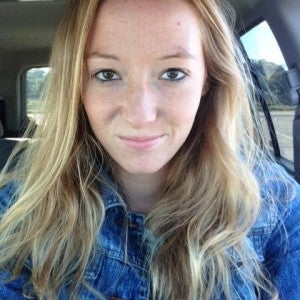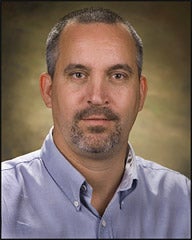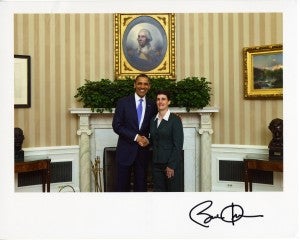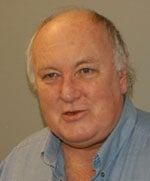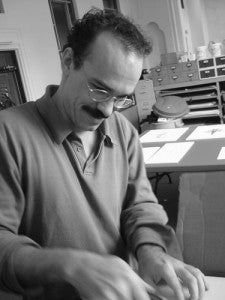Professor Alison Roberts
Degrees completed: B.S. 1980, UC Davis, M.S. 1983, University of California, Davis,Ph.D. 1990, Texas Tech University
text text text text text text
Professor Joanna Norris
Degrees completed: BA Biology, University of Missouri, PhD Biochemistry, Michigan State University
Why did you decide to become a scientist? I had always been interested in gardening and wild things as a child, but I was inspired in my last year of college by a professor named Don Miles who talked to me about the importance of increasing crop productivity to feed the increasing population of our planet. I joined his lab to study photosynthesis in maize.
What is your favorite thing about being a scientist? The way that nature constantly surprises you with results that make you rethink your favorite hypotheses and consider new possibilities.
What are the essential questions that you are addressing in your current research? I am trying to determine which of the cellulose synthase proteins interact to form complexes that synthesize cellulose in different tissues or at different times in development in the moss Physcomitrella patens.
Eric Roberts
Collaborator and Associate Professor at Rhode Island College
Degrees completed: AB (University of North Carolina, Chapel Hill); PhD (University of Texas, Austin)
Why did you decide to become a scientist? Becoming a scientist was not so much a single decision, but instead a process of finding the ecological niche suited to my interests. I have always enjoyed nature, understanding how things work, and explaining stuff. I imagine that these traits could be applied in many settings, but I was happy to discover that they can all be useful in academics.
What is your favorite thing about being a scientist? I don’t have a single favorite, but among the aspects I enjoy are looking at cells with different types of microscopes and the feeling of satisfaction that happens when you figure out how some biological process works.
What are the essential questions that you are addressing in your current research? Much of my work involves how plants produce cell walls, the armor-like coat that surrounds plant cells. But one of the great things about my job is that I can also choose to work on other projects.
Tess Duggan
Hometown: West Kingston, RI
Degrees completed: BS Biological Sciences, BA French, University of Rhode Island
Degree being pursued: MS Cell and Molecular Biology
Why did you decide to become a scientist? I decided to become a scientist because the world we live in is incredibly complex and I find it interesting and satisfying to both understand some of the things around me and to be able to identify the as yet unknown.
What is your favorite thing about being a scientist? Data! I love learning new techniques and it is extremely gratifying to illuminate even just a tiny field, even if it brings more questions than answers.
What are the essential questions that you are addressing in your current research? I am trying to determine which of the cellulose synthase proteins interact to form complexes that synthesize cellulose in different tissues or at different times in development in the moss Physcomitrella patens.
Mai Tran
Hometown: Lincoln, RI
Degrees completed: BS in Biochemistry, Simmons College
Degree being pursued: PhD in Biological Sciences
Why did you decide to become a scientist? text needed
What is your favorite thing about being a scientist? My favorite thing about being a scientist is to design techniques and experiments to answer a question that is presented. Sometimes the answers cannot be answered directly and it is necessary to design multiple ways to answer the same question indirectly.
What are the essential questions that you are addressing in your current research? What genes and proteins are being expressed for upregulation of cellulose under osmotic stress? Also, where are CESAs predominately expressed?
Xing Xing
Danielle Mercure
Hometown:Pawtucket, Rhode Island
Degree being pursued: B.S. Biology, University of Rhode Island
Why did you decide to become a scientist? I plan on going to grad school, I’d like to study cell and molecular biology. I’d like to pursue a career in research that will allow me to help bring global warming to a halt.
What is your favorite thing about being a scientist? I love putting an experiment together and then finding the results. I like that I can work independently and I really love that I am always learning new things. It’s challenging and fun!
What are the essential questions that you are addressing in your current research? The research I am currently helping out with involves looking at certain proteins within a moss plant and determining through various experiments what the function of these particular proteins are.
Jason Walstad
Hometown: Westerly, Rhode Island
Degree being pursued: B.S. in Biological Sciences and Computer Sciences, University of Rhode Island
Why did you decide to become a scientist? Science helps me to answer all the questions I have about the world we live in, and it also allows me to communicate those answers to others who are curious as well.
What is your favorite thing about being a scientist? I enjoy reading about a new discovery in the scientific community and discussing it with my peers.
What are the essential questions that you are addressing in your current research? I am participating in research concerning the synthesis mechanisms of plant cell walls.
Elie Majdalani
Hometown: Pawtucket, Rhode Island
Degree being pursued: B.S. in Biochemistry, University of Rhode Island
Why did you decide to become a scientist? I decided to become a scientist because it is a field where I can learn and discover something new every day, and it is a field that is always growing and changing.
What is your favorite thing about being a scientist? My favorite thing about being a scientist is working as a team to help solve problems and analyze data, a fellow scientist can help spot something you may have missed and help you improve your experimental techniques.
What are the essential questions that you are addressing in your current research? The essential questions I’m addressing in my research are does moss grow differently if a certain gene or combination of genes are removed and can we prove that the gene removal worked?
Liz Berry
Hometown: Hillsborough , New Jersey
Degree being pursued: B.S. in Biological Sciences, University of Rhode Island
Why did you decide to become a scientist? I decided to become a scientist because in science there is a never ending amount of research to be done and new discoveries can always be made. I want to be a part of new developments that science is making to better understand life around us and how everything is changing.
What is your favorite thing about being a scientist? My favorite thing about being a scientist would have to be being able to find answers to questions myself instead of being told them from others. To be in control of an experiment that could lead to new findings that you would then get to share with the science community. Also it is nice knowing that others who are in the field have the same passion as I do and that I can work side by side with coworkers and share that excitement.
What are the essential questions that you are addressing in your current research? need text
Christos Dimos, Ph.D., 2010.
Ash Haeger, 2007-2009, Postdoctoral Fellow
John Bushoven, 2003-2005, Postdoctoral Fellow, Currently Associate Professor-Horticultural Science and Department Chair at Fresno State’s Jordan College of Agricultural Sciences and Technology
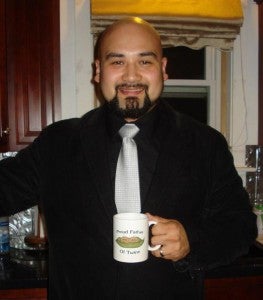
Michael Budziszek, M.S., 2004, Ph.D., 2010., currently Assistant Professor at Johnson and Wales University
Hometown: San Diego, CA
Degrees completed: B.S. , MS, and PhD in Biological Sciences, University of Rhode Island
Why did you decide to become a scientist? I have always been inquisitive.
What is your favorite thing about being a scientist? Researching into new areas beyond my academic background.
What are the essential questions that you are addressing in your current research? How can foods change gene expression?
Chessa Goss, M.S., 2009.
Alissa Neill, M.S., 2004.
Shannon Donovan
Hometown: Coventry, RI
Degrees completed: BS in Botany, University of Rhode Island 1995; MS in Biological Sciences, University of Rhode Island 1999
Current position: high school science teacher in Scituate, RI
Why did you decide to become a scientist? Spending time in the garden with my grandmother as a child, I leaned to notice small things. My grandmother nurtured a sense of curiosity in my that I can only pursue through the lens of science.
What is your favorite thing about being a scientist? I love the challenge of designing an experiment to answer a question for which no other person has an answer. I also love the team atmosphere in the Roberts lab where we all help each other to trouble shoot and learn new techniques. The sort of collaborative environment that Dr. Roberts fosters encourages creativity and makes the work really fun!
What are the essential questions that you addressed in your research? In my work as an undergraduate, we were investigating the “conditioned medium response.” When medium which was used to support the differentiation zinnia tracheary elements (TEs) in xylogenic suspension cultures was added to a newly initiated cultures, the TEs that differentiated were more metaxylem-like than the TEs that differentiated in fresh culture medium. In my Master’s work, I used immunolabeling and electron microscopy to investigate the direction of synthesis of cellulose in secondary cell wall thickenings.
Ben Knight, M.S., 1993
 Home
Home Browse
Browse Close
Close Events
Events Maps
Maps Email
Email Brightspace
Brightspace eCampus
eCampus



